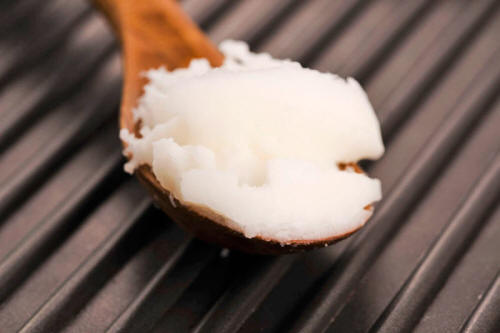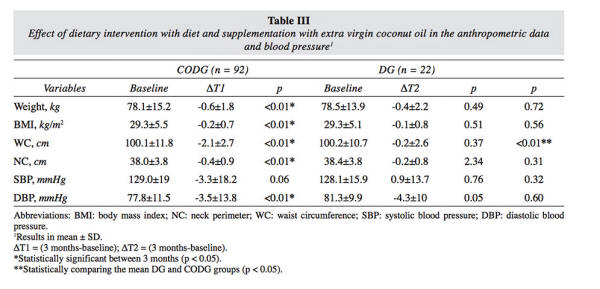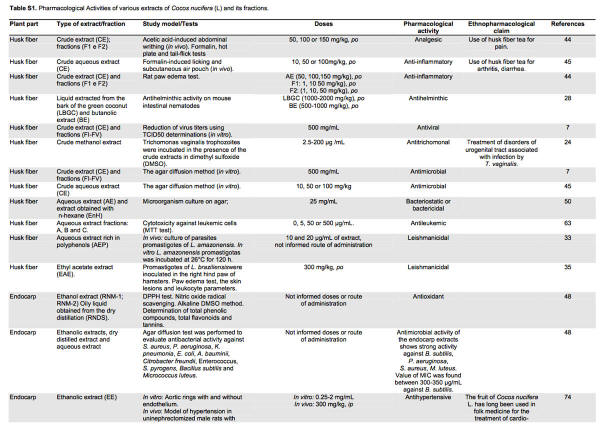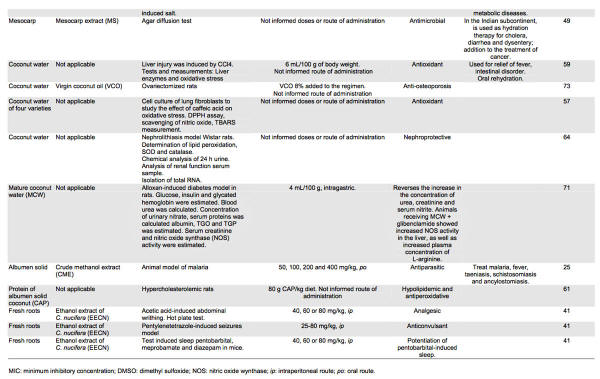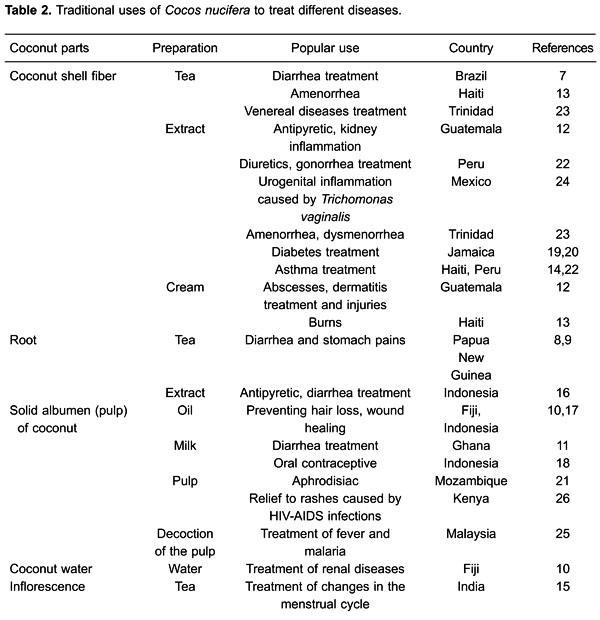|
from GreenMedInfo Website
could promote weight loss and improve cardiovascular health, reveals a new clinical study.
A new study titled, "A Coconut Extra Virgin Oil-rich Diet Increases HDL Cholesterol and Decreases Waist Circumference and Body Mass in Coronary Artery Disease Patients," holds great promise in those suffering from overweight, obesity, and heightened cardiovascular disease risk, and against which pharmaceutical approaches often fail.
Coconut oil was once considered a "bad fat," as it contains saturated fatty acids which conventional nutritionists did not distinguish from synthetically produced ones such as margarine.
We know far better now, and increasingly, natural sources of saturated fats are gaining appreciation as not only "not-bad," but actually beneficial, particularly for the brain.
The new study evaluated the health effects of a nutritional treatment with extra virgin coconut oil, focusing primarily on how it affects HDL cholesterol and a range of anthropmetric measurements (e.g. body weight, size, circumference).
The average age of the participants was 62.4 ± 7.7 years, with 70% of elderly individuals, and 63.2% of males. All of them were hypertensive and 94.5% had blood lipid profiles indicating "dyslipidemia" and on standard, cholesterol lowering drug treatment.
In the first phase, a three month period, 136 enrollees were put on a standardized diet.
From the third month onward, the 116 who completed the first phase were place in two intervention groups:
The results of the the three-month coconut oil intervention showed that relative to the standard diet, the coconut group saw a decrease in all six of the bodily parameters measured, including:
Additionally, the coconut oil intervention group saw a 3.1±7.4 mg/dL increase in HDL cholesterol.
The researchers concluded:
Discussion
This study is far more powerful than may first meet the eye.
For instance, at present, pharmaceutical interventions to raise HDL cholesterol lack solid scientific support.
Only yesterday, it was reported on a new JAMA review which revealed an astounding number of medical procedures have no benefit, even harm, wherein it was concluded that,
Considering the fact that pharmaceutical interventions to lower HDL cholesterol have a wide range of serious side effects, the new finding that coconut oil may provide a natural alternative with side benefits, is all the more encouraging.
Additionally, midsection fat, also known as abdominal obesity, is a serious risk factor for cardiovascular events and cardiac mortality.
In fact, a 2007 study published in the journal Circulation found that of three risk factors evaluated for heart attack, namely, abdominal obesity, abnormal lipids, and smoking, abdominal obesity was the most powerful: 48.5%, versus 40.8% for abnormal lipids, and 38.4% for smoking.
When one considers these two factors, any safe, diet-based lifestyle modification that can safely raise HDL-C cholesterol, and reduce midsection fat and related anthropometric parameters such as BMI and midsection circumference, is a home run.
This is, of course, not the first time we have reported on the powerful health benefits of coconut oil.
In fact, it doesn't take months, or even days, to observe positive changes in certain populations. It was reported previously on what can only be described as an amazing study where just one dose of coconut oil derived medium chain triglycerides produced positive cognitive changes in Alzheimer's patients in only 90 minutes.
You can read about it in greater detail: MCT Fats Found in Coconut Oil Boost Brain Function in Only One Dose.
- The Earth's Most Widespread Medicinal Fruit Plant
-
Besides hemp, there are few if any plants that produce as much food,
shelter, and medicine as the coconut palm.
The table below reveals in detail what parts of the coconut palm are responsible for producing these aforementioned biological effects.
Click above images...
In support of these findings, the database presently contains research on the coconut palm's potential therapeutic value in preventing and/or treating over 50 different conditions, and expressing 16 different beneficial biological effects.
The new study, titled "Cocos Ncifera (L.) (Arecaceae) - A Phytochemical and Pharmacological Review," also reviewed the toxicity literature on the coconut palm's various constituents and found there was no evidence of acute toxicity, and only low toxicity associated with chronic exposure.
The study summarized the story of the coconut palm's fascinating spread around the world as follows:
The review also summarized the traditional healing applications of the coconut palm.
This is an important, complementary data set, because though many of the traditional uses have not yet been tested and validated by science, they may actually work exceptionally well for these conditions in actual practice.
Below is a table showing many of these traditional uses:
The traditional uses were also summarized in the following paragraph:
The study concluded,
|


